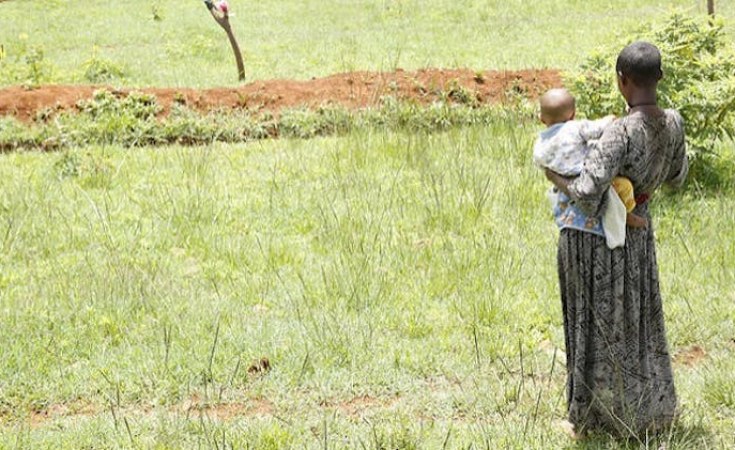Adolescent pregnancy is a global public health concern: in 2022, about 13% of girls and young women gave birth before the age of 18.
Compared with women in their early 20s, adolescents are more susceptible to maternal deaths. Pregnancy-related complications are among the leading causes of death among Africa's adolescent girls.
Babies born to adolescent mothers in low- to middle-income countries also face an increased risk of neonatal deaths, and pre-term and underweight birth.
These risks make it vital that pregnant girls feel comfortable seeking healthcare.
Adolescent pregnancy is an issue in Kenya, too, where 15% of adolescent girls become mothers before the age of 18. Girls from the poorest households are more likely to become mothers than girls from the richest households.
As specialists in medical sociology and public health, we conducted a survey in 2022 of adolescent mothers in an informal settlement in Kenya. About a third reported that they had been abused by health providers during childbirth. The study found that abusive treatment discouraged these girls from seeking future maternity care at healthcare facilities.
This matters for several reasons. One is that facility-based childbirths have a lower neonatal mortality rate than home childbirths. Maternal deaths are also lower when births occur in health facilities than at home.
Young mothers in Kenya
Our study site, Korogocho, is an informal settlement on the outskirts of Nairobi. About 200,000 people live there. It is overcrowded, with poor infrastructure and limited access to water and sanitation. Crime rates are high and residents are often exposed to violence and social unrest.
The study focused on 491 adolescent girls ranging in age from 14 to 19 years, who had a biological child at the time of the interviews.
Data were analysed to estimate the scale of abuse of girls during childbirth in health facilities. In total 32.2% of adolescent mothers suffered abuse from health providers during childbirth.
1.) Physical abuse was reported by 7.5% of participants.
To assess physical abuse, we asked girls if health workers punched, kicked, slapped, gagged, or hit them with an instrument, physically tied them to a bed, forcefully held them down to the bed, or had forceful downward pressure placed on their abdomen before the baby came out.
2.) Among those interviewed, 26.7% reported verbal abuse.
We assessed verbal abuse by asking girls if they were shouted at or screamed at, insulted, scolded, mocked, or had negative comments made about their physical appearance (such as cleanliness, private parts or weight), the baby's physical appearance, and their sexual activity.
3.) Of the participants 15.1% claimed they had been the victims of stigma and discrimination.
Experience of stigma and discrimination was assessed by asking participants if health workers made negative comments to them regarding their ethnicity, race, tribe or culture, religion, age, marital status, education and literacy level, economic circumstances, and HIV status.
4.) One in 10 girls reported neglect and abandonment during childbirth. Neglect and abandonment were assessed by asking girls if staff members were present or not during admission and when the baby came out.
5.) Detainment was assessed by asking girls if they or their babies were held at the facility against their will because of their inability to pay fees. About 17% of the girls reported detainment.
Unsurprisingly, and consistent with a previous study conducted among females within the reproductive age (15-49 years), we found that girls who were abused were less likely to:
- report being satisfied with the care received
- intend to use the facility for future births
- be willing to recommend the facility to others.
Ways forward
Pregnant girls endure societal stigma and discrimination. These attitudes filter into the healthcare system and healthcare workers need to be trained properly to counter the shame that pregnant girls endure.
These adolescents also need to be informed about their rights to respectful care.
There are small scale interventions in some parts of Nigeria and Ghana that show the potential to strengthen health systems to be more responsive to the needs of adolescents.
Until the mistreatment and abuse of adolescent girls is highlighted and addressed, professional care for pregnant girls will not be attained.
Anthony Idowu Ajayi, Research Scientist, African Population and Health Research Center
Caroline W. Kabiru, Senior Research Scientist, African Population and Health Research Center


